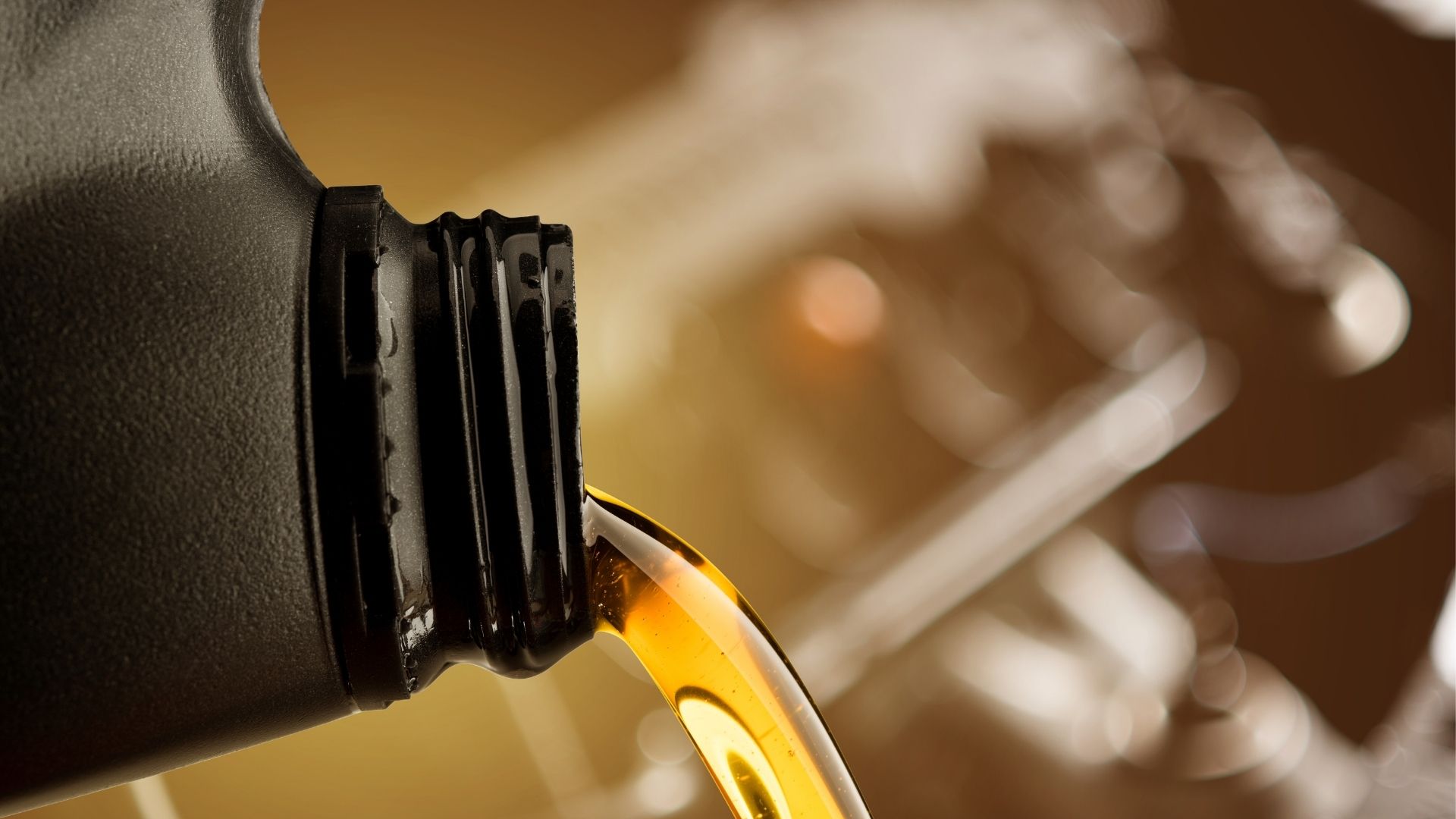Hydraulic fluid is a non-compressible and low viscosity fluid that transfers power in various machines and devices. Hydraulic fluid is usually expensive, which explains why some people are tempted to use another alternative. However, you want to ensure that you are well informed about this subject before choosing a substitute. An unsuitable replacement will damage your hydraulic jack and other crucial components. Consequently, this mistake will cost you more money than you would have initially spent on hydraulic fluid.
Top 5 Substitutes for Hydraulic Fluid
Automatic Transmission Fluid (ATF)
This is undoubtedly the most popular hydraulic fluid substitute you can find. In fact, some car manufacturers use ATF instead of hydraulic fluid. Most people are skeptical about using transmission fluid instead of hydraulic fluid. However, it is worth noting that ATF is a great substitute for hydraulic fluid, especially if you choose one with the correct viscosity.
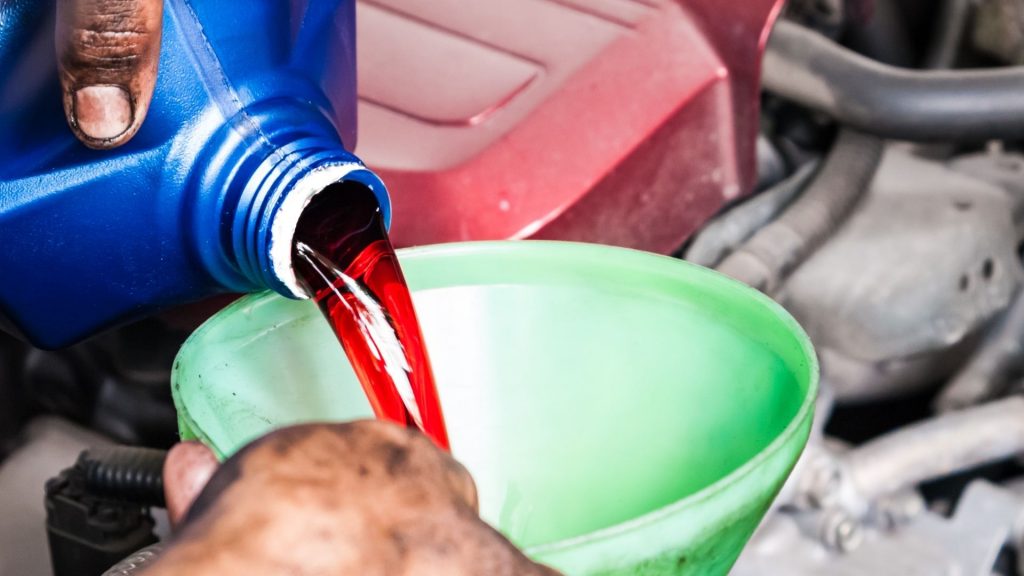
Over the years, car owners who have used ATF as a hydraulic fluid have reported some issues. For example, ATF contains additives that can easily damage hydraulic seals. Additionally, ATF foams easily, especially when subjected to extremely high pressure. This is unlike hydraulic fluids, specifically designed not to foam under any pressure.
It is also worth noting that the cylinders found in some machines and devices are designed to work with specific hydraulic fluids. Therefore, if you use ATF or any other fluid, the cylinders may not function as effectively. ATF may only produce good results if you use it with small hydraulic jacks. However, it may be best to avoid using ATF altogether.
Brake fluid
If you have a motorcycle or car, brake fluid serves as a great substitute for hydraulic fluid. Brake fluid works well as a substitute because it has similar properties as hydraulic fluid and can work well with different machines.
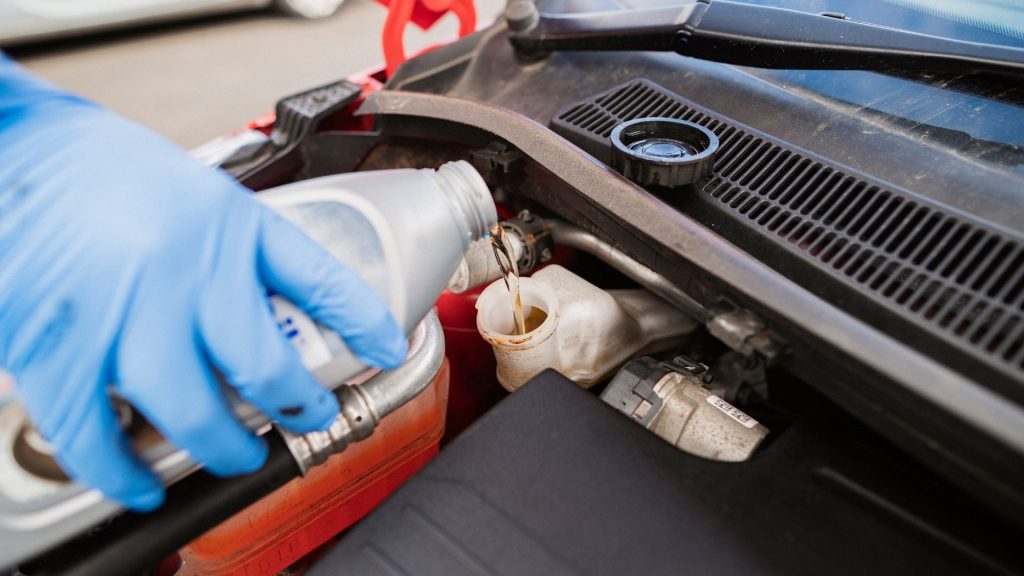
However, brake fluid contains alcohol which can easily damage the hydraulic jack seals if you use it over a long period. Therefore, you should only consider using brake fluid in place of hydraulic fluid in an emergency.
Vegetable seed oils
Some of the vegetable seed oils in the market today can serve as good substitutes for hydraulic fluids, especially in car engines. These vegetable seed oils can move metal parts, and they have several advantages over mineral oils.
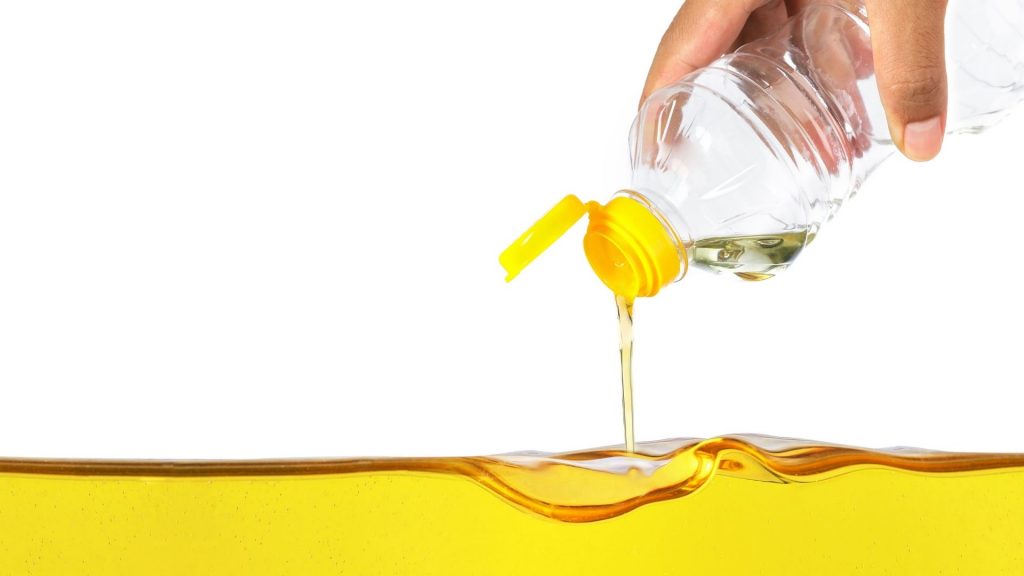
Some of the best vegetable seed oils you should consider as substitutes for hydraulic fluid include canola, sunflower, and soy seed oils.
However, the overall performance of vegetable seed oils usually depends on the kind of base oil and additives used. Most people prefer these oils because they are non-toxic, biodegradable, and have a much higher lubricity and flashpoints than mineral oils.
The biggest drawback of using vegetable seed oils as hydraulic fluids is low oxidation resistance compared to other possible substitutes. Additionally, vegetable seed oils are expensive and perform poorly in low temperatures.
Engine oil
It is common for many people and industries to use engine oil with a low API rating as an alternative for hydraulic fluid.
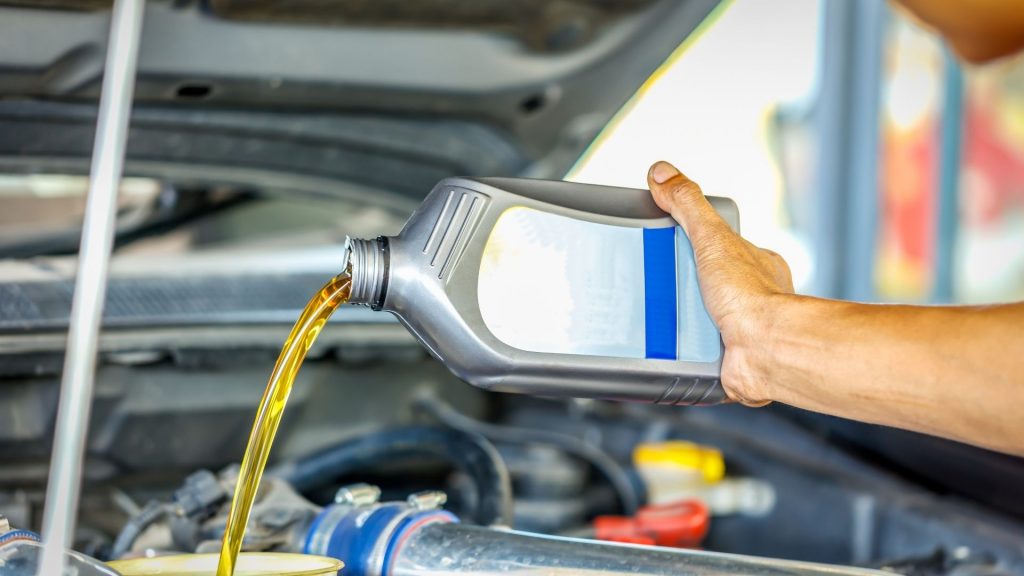
Even though engine oil has several hydraulic properties, it still lacks the recommended viscosity for hydraulic fluid. In fact, engine oil has a higher viscosity than other substitutes, making it capable of damaging the hydraulic system and causing performance issues.
If engine oil is the only available substitute for hydraulic fluid, you should mix it with a little amount of regular hydraulic fluid to reduce its viscosity. Even though engine oil may not be the ideal replacement for hydraulic fluid, it will serve you well in emergencies.
If you have to use engine oil, ensure that you only use just enough to get you to your destination and replace it as soon as possible. Using engine oil in place of hydraulic fluid for an extended period will damage your car’s hydraulic system.
Water
If hydraulic fluid is not readily available, you can use water. However, it is worth noting that water will not work well in some machines compared to hydraulic fluid. Sometimes water can freeze and form ice, preventing the machine from functioning well. If you are using water in place of hydraulic fluid, experts recommend that you ensure it is clean and without any debris.
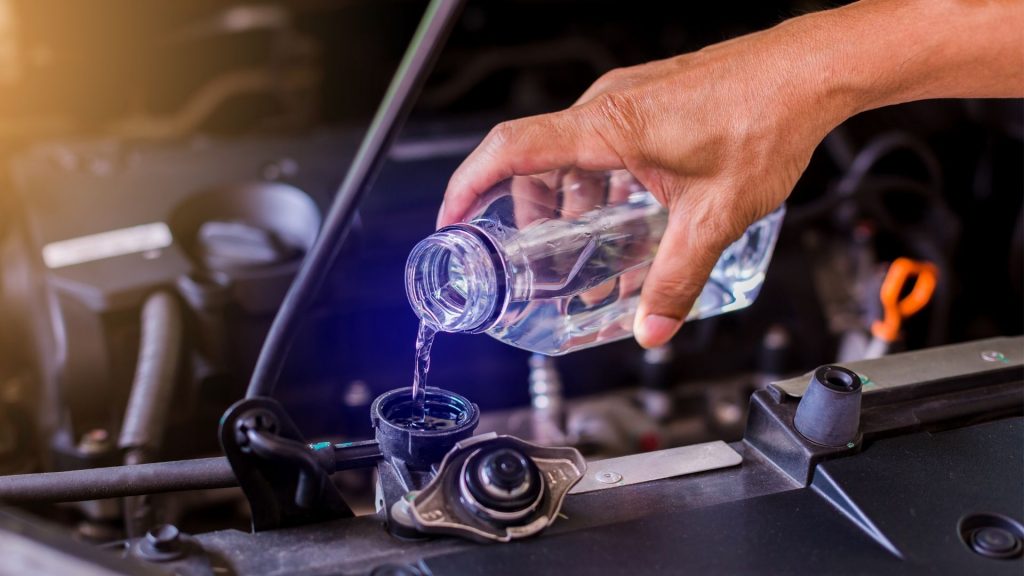
You should also store the water in suitable places, so it does not freeze easily. However, if you frequently use your vehicle’s brake or clutch pedal, you do not have to worry about the water freezing.
Things to Check Before Using the Alternatives of Hydraulic Fluid
You should always be careful when picking a substitute for hydraulic fluid. If you select the wrong substitute, you could damage your hydraulic system, which leads to expensive repairs. It is always financially beneficial to consult a certified professional before settling for a given substitute.
It is worth noting that a hydraulic system’s warranty specifies the kind of hydraulic fluid that you should use. Therefore, using a different type of hydraulic fluid will void this warranty. The following are the factors you should consider before using a particular alternative for hydraulic fluid:
Viscosity
Viscosity is undoubtedly the most important factor you should consider when choosing a substitute for hydraulic fluid. It does not matter how good the other properties are if the substitute’s viscosity does not match the hydraulic system’s temperature range.
If these two elements are incompatible, the hydraulic system will not operate effectively. Generally, hydraulic fluids usually have a low viscosity at high temperatures and high viscosity at low temperatures.
Therefore, when picking a particular substitute for hydraulic fluid, you should consider the starting temperature at minimum ambient temperature, the maximum operating temperature inside the hydraulic system, optimum viscosity range of the hydraulic system’s components.
If your hydraulic system operates in primarily cold temperatures, you should go for multigrade oil as a substitute for hydraulic fluid. If you choose an alternative that is too thick, the hydraulic system will not be able to draw the fluid from the reservoir.
On the other hand, if you use an alternative that is too thin, there will be internal slippage inside the hydraulic system, thus making it ineffective.
Demulsibility
A fluid’s demulsibility refers to its ability to resist mixing with water. The last thing you want inside the hydraulic system is water. This is because it can enter the system at various points, contaminate it, reduce its performance and increase wear and tear.
The most effective and favored way to deal with this problem is by using an alternative that contains detergents that will emulsify or demulsify the water and remove these contaminants.
Emulsifiers suspend water from the hydraulic system while demulsifiers separate it. If you use demulsifiers to remove the contaminants, it will be necessary to drain the reservoir. But, you should note that not all hydraulic systems require detergents to get rid of pollutants. Detergents are only required for small hydraulic systems, not big ones.
ZDDP is the most popular additive because it contains anti-wear and anti-oxidative properties. However, it may be best to choose an anti-wear hydraulic system, especially if it operates under harsh climatic conditions.
Lubricity
When choosing a substitute for hydraulic fluid, you want to ensure that you go for one with high lubricity. Such an alternative will ensure that the hydraulic system is fully lubricated at all times.
A substitute with high lubricity will also create a protective film on all metal surfaces and reduce friction. This way, your hydraulic system will not wear out prematurely, generate excess heat or lose power during operation.
It is worth noting that repairing the components of a hydraulic system is expensive. Therefore, you want to keep them lubricated at all times so that you do not incur unnecessary repair costs.
What If I Choose a Poor Substitute for Hydraulic Fluid?
Using a poor substitute will cause overheating, inadequate lubrication, and extensive damage to the entire system. Such damage is expensive to fix or impossible to reverse.
Some substitutes for hydraulic fluid are usually incompatible with hydraulic systems since they contain different additives. Your hydraulic system needs the right kind of hydraulic fluid per the manufacturer’s guidelines to operate effectively and to the maximum lifespan.
Sometimes the recommended hydraulic fluid may not be readily available, meaning you have to find other alternatives.
Even though there are plenty of options in the market today, it is worth noting that using a poor substitute for hydraulic fluid can negatively affect your hydraulic system.
Why Do I Need to Use a Hydraulic Fluid Alternative?
It is necessary to use an alternative if the hydraulic fluid is depleted and you need to keep the hydraulic system in operation for longer. You may also need to use an alternative if you do not have the appropriate protective gear to protect yourself from the safety and health hazards that come with handling hydraulic fluids.

